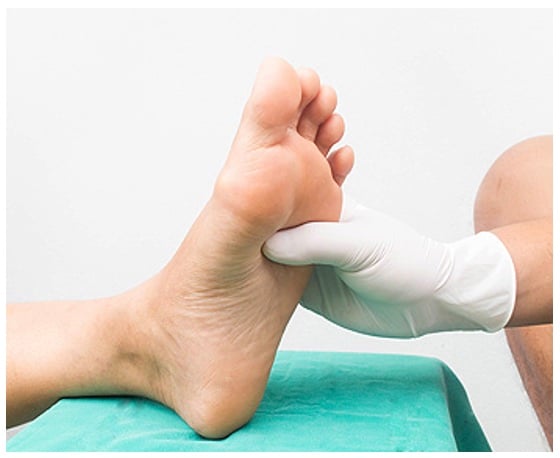
In order to provide reliable solutions, the medical field tends to adhere to established practices, but it’s important to examine treatments developed over five decades ago to ensure they are in line with the present medical landscape. Patients ought to question conventional neuropathy wisdom by urging foot and ankle surgeons to prioritize nerve conservation for neuropathy, rather than eliminating a small yet significant portion of anatomy that could be preserved.
Physicians are educated to believe that neuropathy is permanent and progressive, with no effective remedy for the impaired nerves. When treatment is provided, it typically takes the form of medication commonly used for depression and seizures.
Foot and ankle surgeons often treat nerves as the stepchild in comparison to other structures such as bones and tendons. Although no surgeon will openly admit to destroying nerves, they are often given little consideration. Compressed nerves situated between the 3rd and 4th toe frequently cause painful sensations, but instead of comprehending the source of the pain, surgeons tend to remove the issue.
When doctors aren’t excising nerves in the foot, they might be freezing (cryoablation) or applying alcohol to them (poisoning). Rather than preserving and enhancing function, we employ a caustic and scar-inducing alcohol solution to numb these nerves. When nerves are frozen to death, circulation in the area is also compromised since blood vessels run alongside the nerve.
Eliminating nerves may alleviate a patient’s pain, but it also eliminates sensation in that region. Doctors downplay this as insignificant because only a small portion of feeling is lost in the foot. However, it is more logical to employ techniques that restore a foot to its original state rather than causing permanent damage.
No hand surgeon would consider it acceptable to remove a nerve in the wrist, as they understand that motor function is at risk. As a result, it is not a viable solution to dispose of damaged nerves, since maintaining dexterity is crucial for wrist and hand functionality. Hand surgeries often concentrate on easing a constricted area by releasing tissue compressing the nerve without causing any harm. This approach preserves nerves, enhances function, and alleviates symptoms such as numbness and burning.
Nevertheless, in foot and ankle surgeries, numerous neuromas (nerves in the foot) are removed and discarded daily. We have been conditioned to adopt this harmful approach for decades, despite the similarities between hands and feet that warrant comparable treatment. Why is it permissible to destroy nerves in the foot when it is inconceivable for hand surgeons?
Regrettably, contemporary foot and ankle surgery is not keen on treatments that emphasize nerve preservation. Instead, they opt for damaging procedures because they adhere to the status quo and do not question the norms of medical care.
However, nerve scarring known as stump neuromas can develop after nerves are destroyed, and this can ultimately cause more pain than the initial problem. After a nerve is excised, it tries to regenerate, albeit slowly, and can become painful after several years. Doctors are reluctant to admit that this occurs more frequently than it should because poisoning, freezing, or removing nerves is standard practice. Stump neuromas do not always develop, but when they do, treatment becomes difficult.
If you have consulted with your doctor and have received the standard response that nothing can be done, I urge you to stand up for your health. The majority of doctors have good intentions, but they may lack sufficient knowledge of surgical nerve anatomy to consider alternative neuropathy treatments. Advocating for yourself can be daunting, as it involves pushing doctors to consider your preferences. If the doctor disagrees, seek additional professional opinions and decide what is best for you.
I aim to be a champion for my patients because, as a medical professional, I am uneasy about performing these harmful surgeries on their bodies when there is an alternative that avoids the loss of sensation, even if only in a minor region. Many patients are not aware of the available options because medicine is often portrayed as having only clear-cut solutions. Non-traditional approaches are perceived as untrustworthy and lacking scientific basis, yet this viewpoint restricts patients’ access to treatments that may be more suitable for them.
Raising awareness and informing patients about how nerve preservation can relieve their neuropathy symptoms will make it more likely for doctors to adopt this technique and encourage innovation that has been neglected in foot and ankle surgery. On a larger scale, I hope these influences extend to other areas of medicine, enabling updates to traditionally performed procedures and enhancing patient satisfaction globally.
Dr Alan Shih is CEO of Head to Toe Healthcare, PLC
Advertising disclosure: We may receive compensation for some of the links in our stories. Thank you for supporting LA Weekly and our advertisers.
